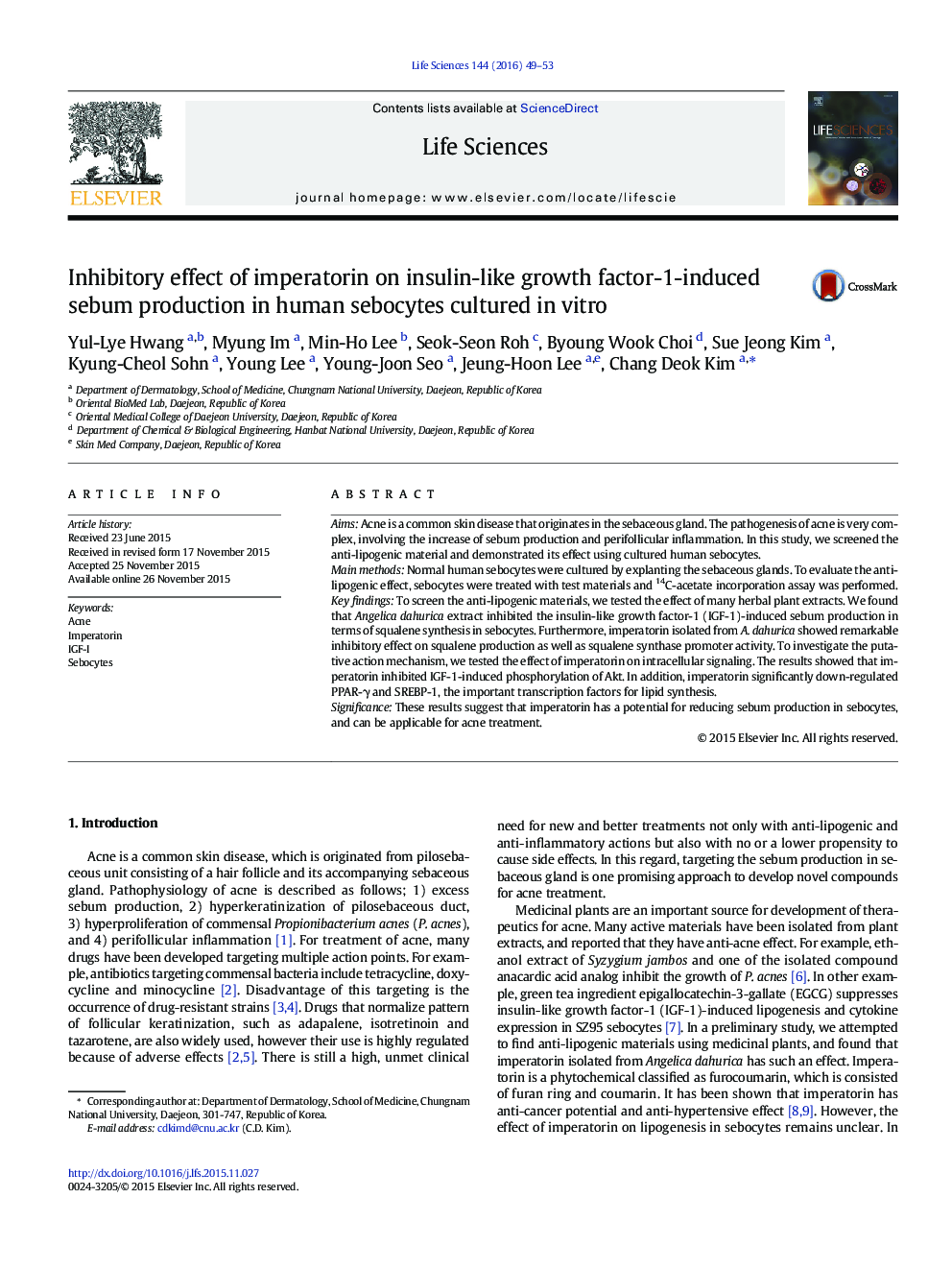| Article ID | Journal | Published Year | Pages | File Type |
|---|---|---|---|---|
| 2550607 | Life Sciences | 2016 | 5 Pages |
AimsAcne is a common skin disease that originates in the sebaceous gland. The pathogenesis of acne is very complex, involving the increase of sebum production and perifollicular inflammation. In this study, we screened the anti-lipogenic material and demonstrated its effect using cultured human sebocytes.Main methodsNormal human sebocytes were cultured by explanting the sebaceous glands. To evaluate the anti-lipogenic effect, sebocytes were treated with test materials and 14C-acetate incorporation assay was performed.Key findingsTo screen the anti-lipogenic materials, we tested the effect of many herbal plant extracts. We found that Angelica dahurica extract inhibited the insulin-like growth factor-1 (IGF-1)-induced sebum production in terms of squalene synthesis in sebocytes. Furthermore, imperatorin isolated from A. dahurica showed remarkable inhibitory effect on squalene production as well as squalene synthase promoter activity. To investigate the putative action mechanism, we tested the effect of imperatorin on intracellular signaling. The results showed that imperatorin inhibited IGF-1-induced phosphorylation of Akt. In addition, imperatorin significantly down-regulated PPAR-γ and SREBP-1, the important transcription factors for lipid synthesis.SignificanceThese results suggest that imperatorin has a potential for reducing sebum production in sebocytes, and can be applicable for acne treatment.
